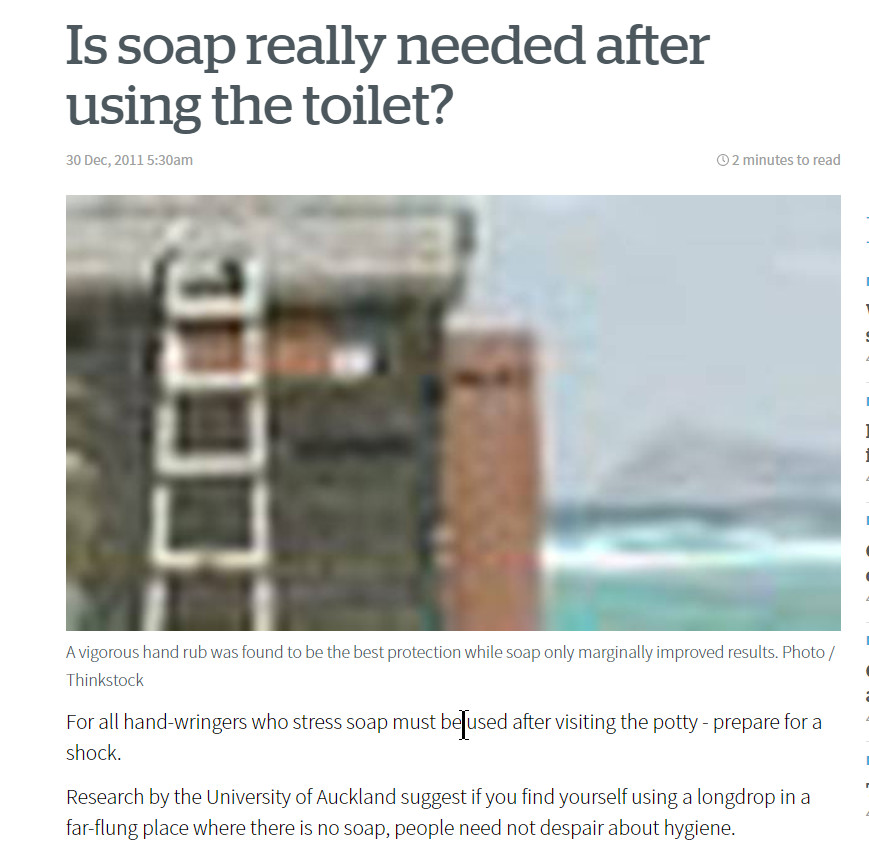Is soap really needed after using the toilet?
 |
article de presse Dec 2011 ; 1 pages
Ed. New Zealand Herald -
Téléchargeable chez l'éditeur
Abstract:
A vigorous hand rub was found to be the best protection while soap only marginally improved results. Article:
For all hand-wringers who stress soap must be used after visiting the potty - prepare for a shock.
Research by the University of Auckland suggest if you find yourself using a longdrop in a far-flung place where there is no soap, people need not despair about hygiene.
The study shows that soap is only marginally more effective at decontamination than "purposefully" washing with only running water for 20 seconds.
A vigorous hand rub is the best protection against bugs and soap only marginally improves the results at the end of the full 20-second "friction" wash, the researchers found.
Running water by itself was comparatively ineffective and the hand-to-hand friction during washing had the biggest effect on reducing contamination. Soap, the researchers said, could reduce the friction required to clean hands properly.
The study, published in the Australian journal Healthcare Infection, involved 11 researchers who volunteered to use three different ways of hand-washing after they had been contaminated with a saline solution of E. coli bacteria from their own faeces.
In the first five to 10 seconds of the washing process, they found soap actually slowed the process of decontamination, which they considered was due to soap being a lubricant which affected the amount of friction.
Once the 20-second stage of the wash had been reached, the friction effect was restored because the soap had been washed off.
Soap only marginally improved the results at the end of the full 20-second friction wash.
But senior research fellow Dr Tom Miller, who led the study, said he was not suggesting people should avoid soap because it was useful for "visibly contaminated" hands.
Otago Daily Times
By: Elspeth McLean
Mot clef: |
Pays concerné: |
Editeur/Diffuseur: |
|
New Zealand Herald - - Nouvelle Zélande |
En cas de lien brisé, nous le mentionner à communication@pseau.org